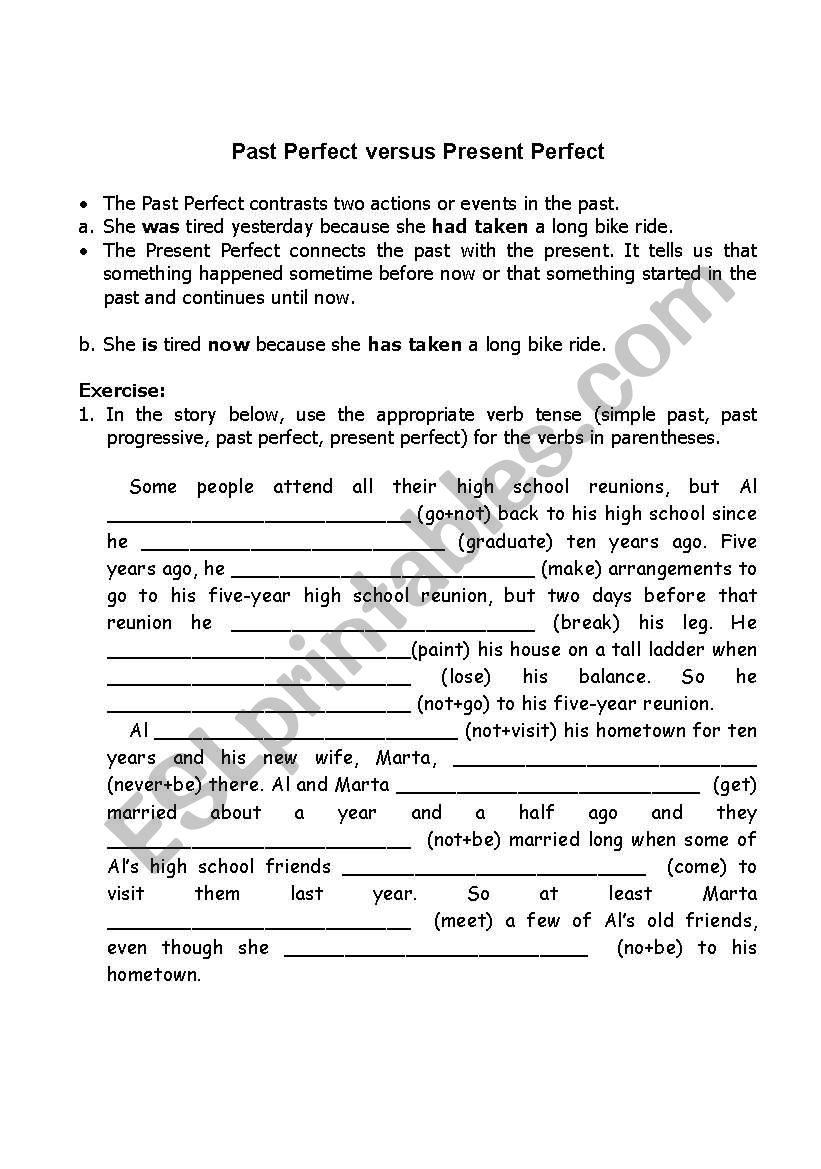

Present perfect and past perfect movie#
For example, “I have seen the movie three times”. When an action happened more than one time in the past, use the present perfect. There are four more common situations that require the present perfect.įirst, it can express a repeated action. The exact time of the graduation is not important. The sentence “I have graduated from college,” emphasizes the present effect of a past event - graduation. It is also called “present perfect” because speakers use it to stress the importance of a past event in the present. For example, “I have graduated from college.” The present perfect confuses English learners because it refers to a past action. You form the present perfect by using “have” or “has” followed by the past participle form of the verb. Now let’s talk about the present perfect.

For example, “I went out with my friends last night.” The adverb “last night” is not required, but it does help clarify that the event happened at a specific time. Use the simple past to talk about a finished action that happened at a specific time. “I have seen the movie” suggests that you saw the movie at an unknown time in the past. But there is one important difference: “I saw the movie” suggests that you saw the movie at a specific time in the past. “I saw the movie” and “I have seen the movie” both refer to an action that was finished in the past. Sentence two uses the present perfect tense. Can you tell the difference between these two sentences? English learners often confuse these two verb tenses. In this week’s episode of Everyday Grammar we’re going to help you understand the difference between the simple past and the present perfect.


 0 kommentar(er)
0 kommentar(er)
